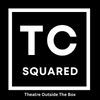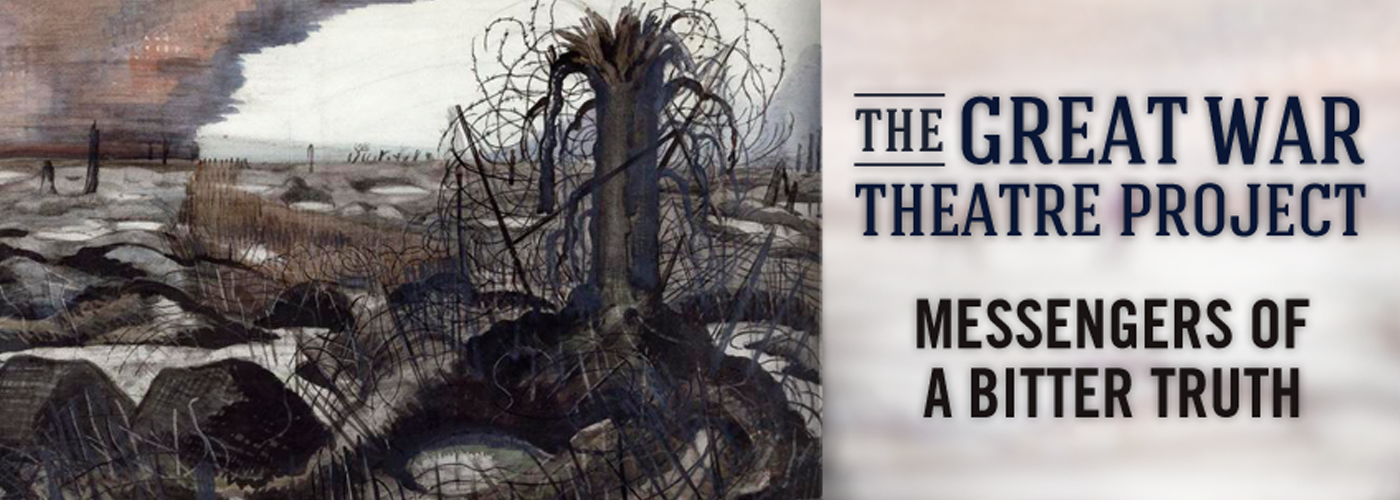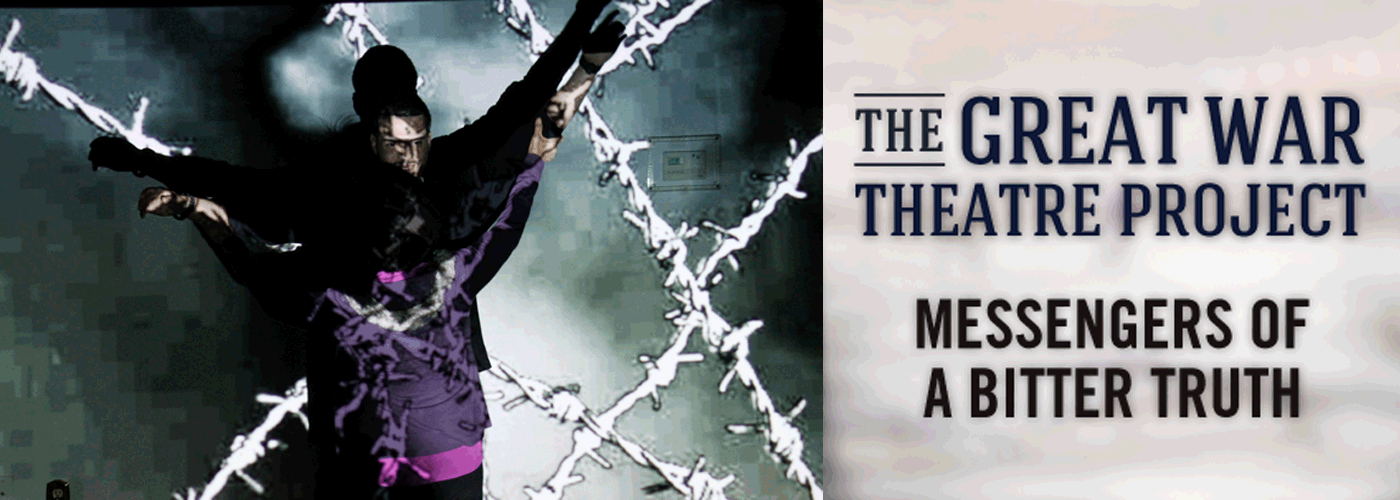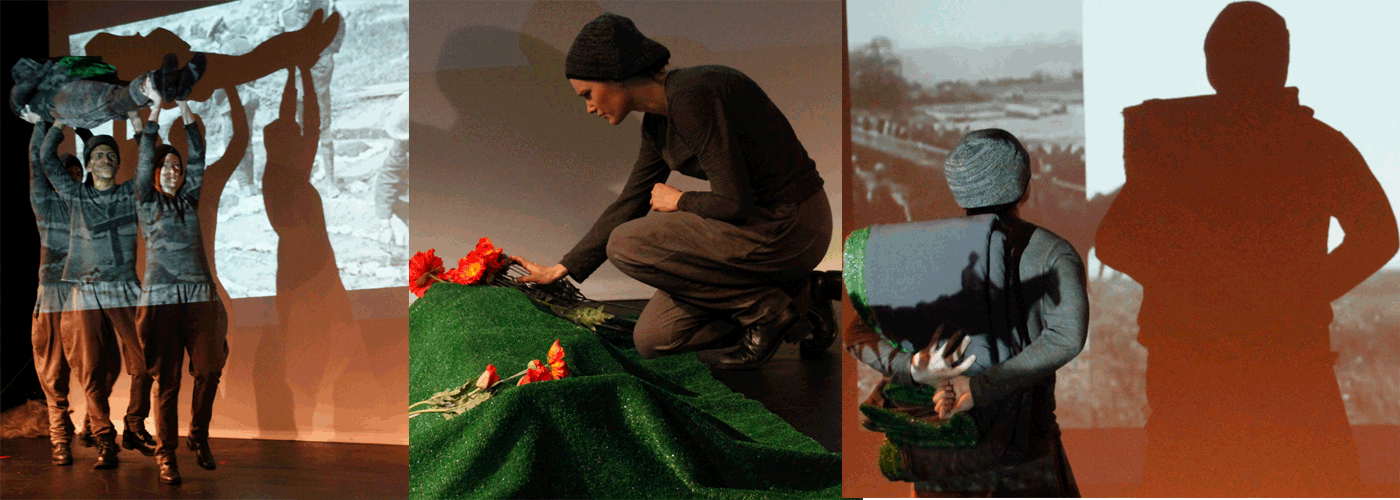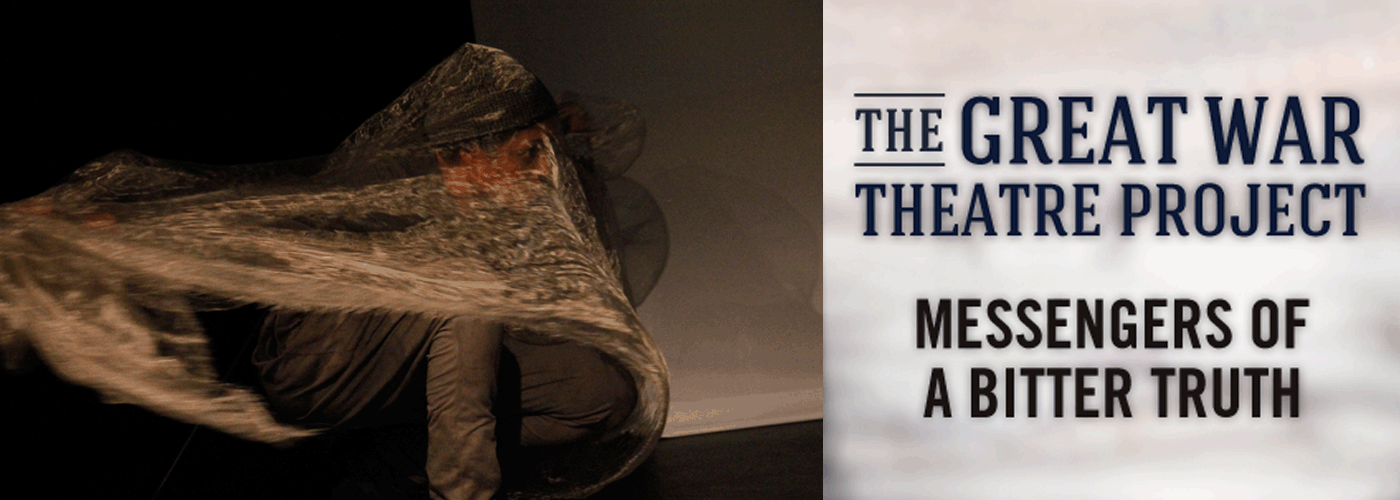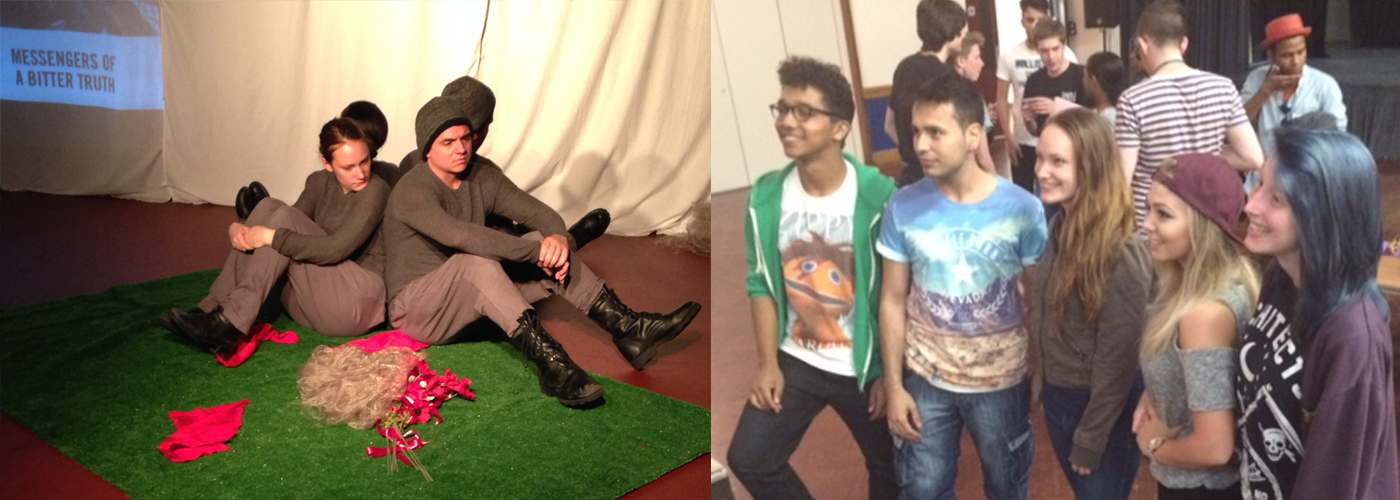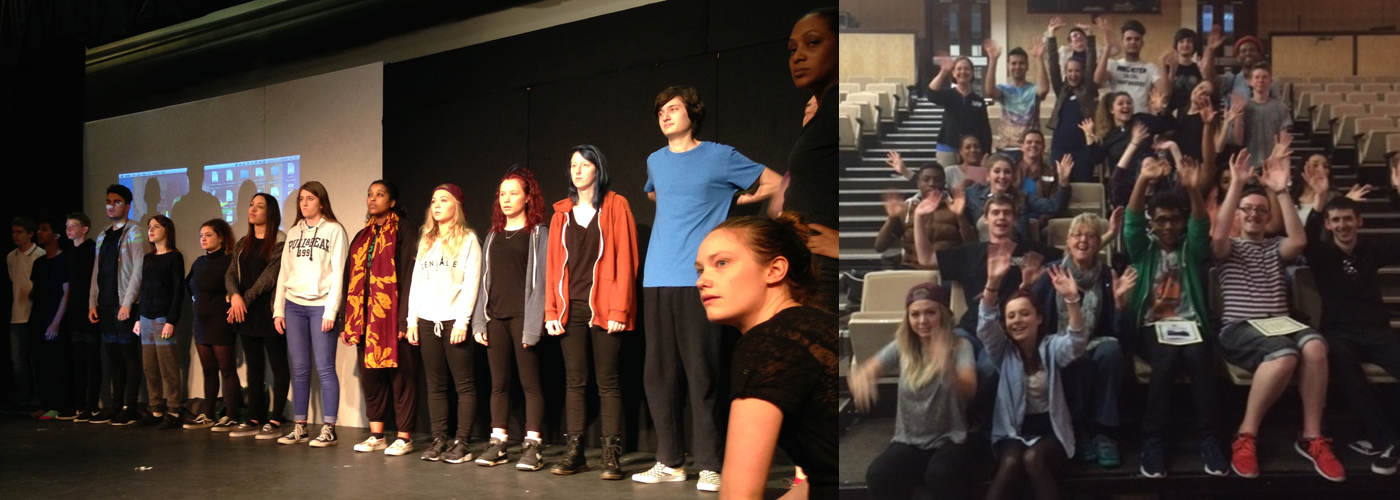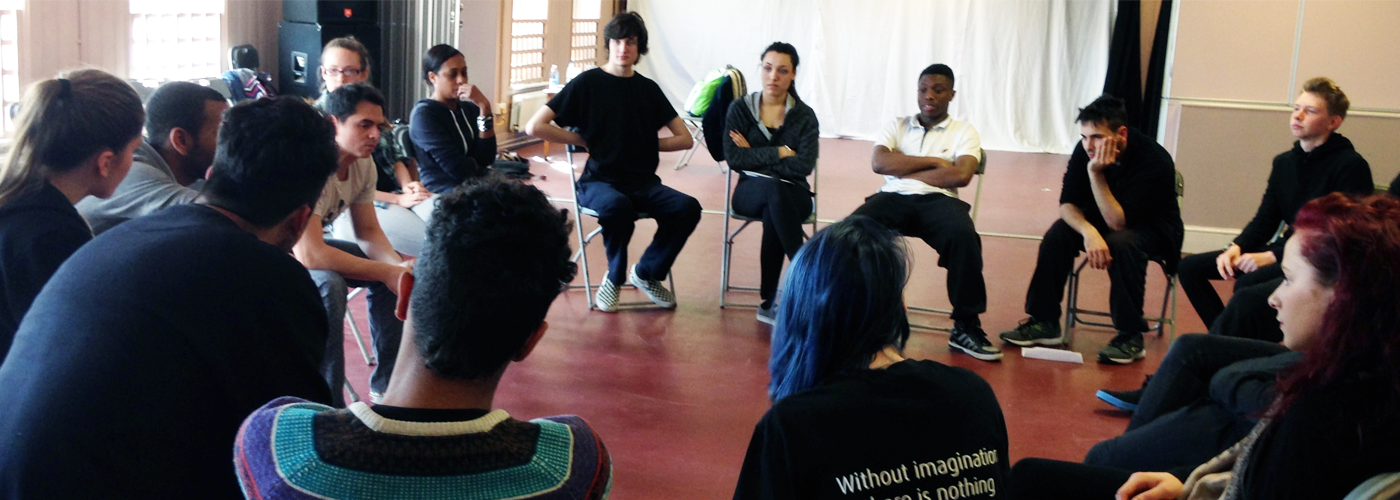The GWTP final performances closed in December 2015.
It is now over three and a half years since the inception of the GWTP, and a celebration of its presence in Boston, New York, and London, UK, will take place on Friday December 18 from 5-6pm at Lesley College, Alumni Hall, followed by our TC2 Art Salon and our Holiday Party.
The Emmanuel Center, Newbury Street, was the setting for the Armistice Day Remembrance on Sunday November 8th. We played to a large audience with a powerful talk back led by the Rabbi and the Minister.
The Massachusetts Humanities Foundation and History Channel grant to tour Boston Public Schools concluded with performances in December at Boston Latin School and Boston Community Leadership Academy. This completed the schools’ tour, which has also included shows at Charlestown High, Dorchester Academy, Boston Arts Academy, Excel High, Josiah Quincy Upper School, and New Mission High. We have also performed at the Winsor School and Maynard High School.
***
The Great War Theatre Project is a multi-media performance piece commemorating the 100th anniversary of the outbreak of World War One through words of actual experience, bearing witness to a cataclysmic chapter in human history and the tragic loss – on all fronts – of so much human potential. This original, interactive performance event has a powerful script enriched by projected images of archival film footage, still photographs, and artwork. The original music underscores the tension between modern technological warfare and the outmoded weapons and strategies of earlier times. The Great War Theatre Project is a vivid illustration of how the arts provide a pathway to understanding historical events and deepen our connection to the past.
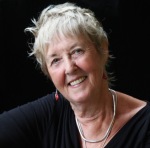 Rosalind Thomas-Clark, Artistic Director
Rosalind Thomas-Clark, Artistic Director
Born in England during World War II, my family history was steeped in stories of World War l and the impact it had on my parents and grandparents. My maternal grandfather died in the war, and my hallway in Cambridge has photos of him in his uniform standing proudly next to my grandmother, my mother, and her brothers. I have always been aware of the horrors of The Great War, and that it clearly was never “the war to end all wars.” As an adult, I feared that my American friends would be sent to Vietnam and, later, that my own son might be drafted to fight in the Falklands or in the Gulf Wars. Now I have young grandchildren, and still carry that fear for them deep in my soul. As a pacifist, I have always asked myself the question, “Why War?”
Working with Susan Werbe on this piece has inspired my artistic process. The concept is simple. The motifs are clear. Our approach to tell the story of this war through video, music, movement, and dramatized text reinforces the power of theatre as an entry point for audiences to experience and understand an event that changed our culture and history and ultimately the way we now live our lives. I am indebted to all the actors who have helped bring to life my creative ideas and The Great War Theatre Project.
 Susan Werbe, Executive Producer
Susan Werbe, Executive Producer
Nearly three years ago, I conceived this project to commemorate the centenary of The Great War, envisioning a multi-media theatre piece incorporating spoken words, images, movement, and music. The concept—and the words themselves—grew out of my personal journey of exploration, a journey that has taken me to collections in US and British libraries, giving me opportunities to view original writings—such as a letter from the English poet Isaac Rosenberg, a letter from the trenches, an excerpt of which you will hear. The words of his letter are as compelling and real today as they must have been when he wrote them in 1917.
From the outset, The Great War Theatre Project has been a wonderful collaboration with Rosalind Thomas-Clark, whose artistic vision has brought the original concept to life with sensitivity and power. The people whose words our extraordinary actors will speak—whatever their views of the war, on whichever side they fought, whether they survived or not—were caught up in a cataclysmic chapter in human history. It is our hope that their words will bring this piece of history alive for you and will pay tribute not only to these men and women, but also to the tragic loss—on both sides—of so much human potential.
Image Credits
Paul Nash, Wire, 1918. Courtesy of The Imperial War Museum.
Phyllis Bretholtz, photography
